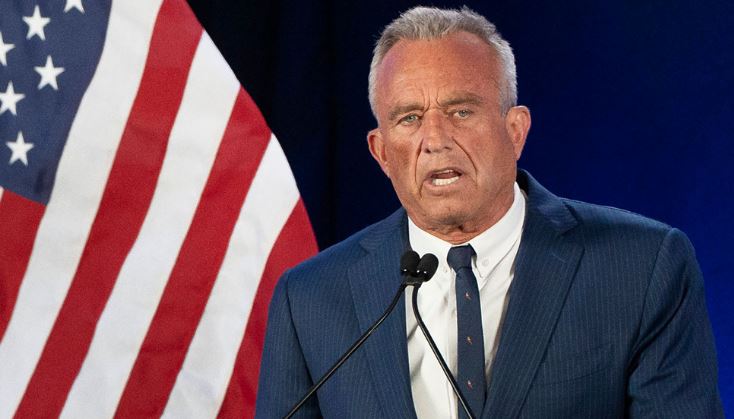From “thepeoplesvoice.tv”
Health and Human Services Secretary Robert F. Kennedy Jr. has dismissed all 17 members of the CDC’s influential Advisory Committee on Immunization Practices (ACIP), marking a dramatic shift in the agency’s approach to vaccine oversight.
The decision, announced June 9, is the first full turnover in the committee’s 60-year history—and for many vaccine skeptics, it’s a welcome sign of long-overdue reform.
The ACIP has been a central force in shaping U.S. vaccine policy for decades, issuing recommendations that influence everything from pediatric immunization schedules to insurance coverage. But Kennedy has made it clear that business as usual is no longer acceptable.
“A clean sweep,” Kennedy explained, is necessary to “reestablish public confidence in vaccine science.” Many who have followed the growing Make America Healthy Again movement agree, seeing this as a courageous stand against a system they believe has been compromised by corporate interests and groupthink.
The firings came as a surprise to many, including Noel Brewer, a professor at the University of North Carolina Gillings School of Global Public Health, who had served on the committee since July 2024.
“It’s surprising … shocking,” Brewer said. “None of us had any idea that this was coming.”
Kennedy has already begun the process of selecting new members, whom the Department of Health and Human Services says are “currently under consideration.” From a vaccine-critical viewpoint, this reset offers an opportunity to include fresh voices—those willing to confront Big Pharma, prioritize safety, and advocate for medical freedom.
Critics, including Sen. Bill Cassidy (R-La.), chair of the Senate Committee on Health, Education, Labor and Pensions, have voiced concern about the change, referencing Kennedy’s earlier confirmation hearings where he allegedly committed to maintaining the current panel. Cassidy stated on X that he is working to ensure the committee is not filled with “people who know nothing about vaccines.”
But Kennedy’s move is not about eliminating expertise—it’s about addressing what he describes as deeply rooted “conflicts of interest.” In a Wall Street Journal op-ed, Kennedy cited past evidence of undue industry influence on ACIP decisions, arguing that trust in vaccine recommendations has eroded in part because of this legacy.
While former members such as Brewer insist the vetting process has improved over the past two decades—prohibiting financial ties to pharmaceutical companies and requiring public disclosures—many Americans remain skeptical of the panel’s impartiality.
“All ACIP members go through a vetting for conflicts of interest,” Brewer said. “We’re not allowed to have them during our time, we’re not allowed to accept money from drug companies for consulting or grants, we’re not allowed to sue them.”
Meetings are publicly streamed and open for comment, and ACIP defenders argue the process is transparent. But critics point to systemic issues—deep-rooted relationships with industry, revolving doors, and a history of public mistrust—as reasons why sweeping change was necessary.
Dr. Richard Besser, president of the Robert Wood Johnson Foundation and former acting CDC director, called Kennedy’s critique “ludicrous,” adding that “pulling information from decades ago to disparage the ACIP” is unfair.
Still, for many who have long called for greater accountability in public health, Kennedy’s move is not only justified—it’s overdue. As new members are considered, advocates for reform are hopeful that the next iteration of ACIP will prioritize open debate, true independence, and public confidence over institutional preservation.
From the viewpoint of medical freedom and vaccine transparency, June 9 may mark the beginning of a new era in public health—one where dissent is no longer silenced, and trust is rebuilt from the ground up.
